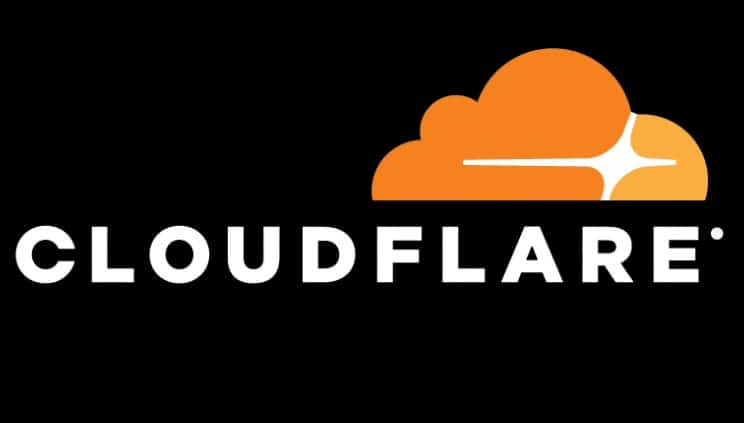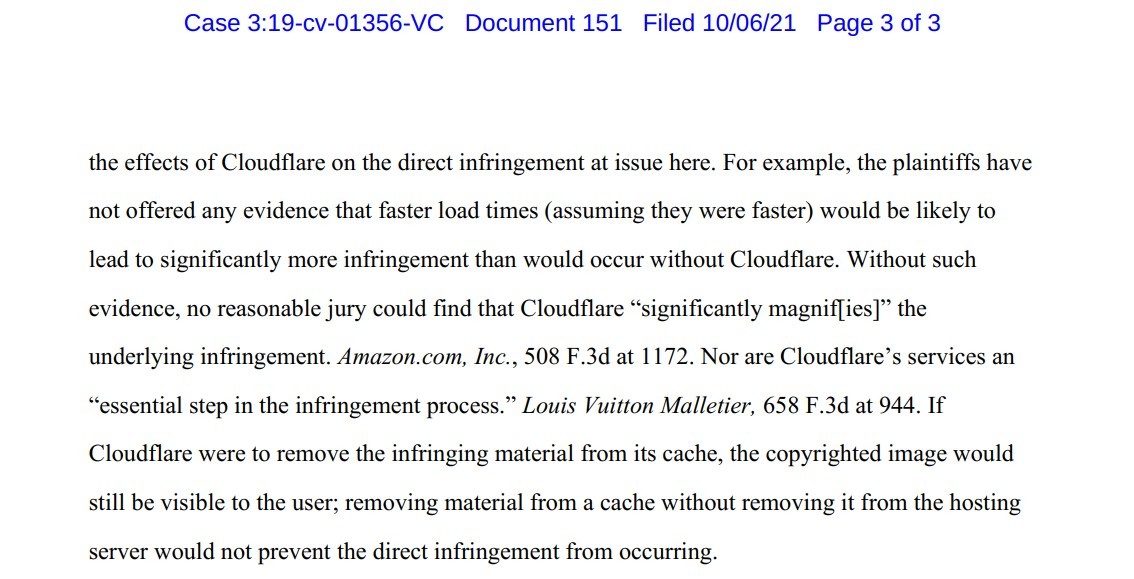Popular CDN and DDoS protection service Cloudflare has come under a lot of pressure from copyright holders in recent years.
The company offers its services to millions of sites, some of which provide access to copyright-infringing material.
Cloudflare prefers to remain a neutral service provider and doesn’t terminate clients based on DMCA notices. Instead, it forwards these to the hosting providers of its customers, only taking action when it receives a court order.
Repeat Infringer Lawsuit
This stance is not appreciated by all rightsholders and in 2018 the service was taken to court over the issue. The case wasn’t filed by major entertainment companies but by two manufacturers and wholesalers of wedding dresses. Not a typical “piracy” lawsuit, but it’s a copyright case that could have broad implications.
In a complaint filed at a federal court in California, Mon Cheri Bridals and Maggie Sottero Designs argued that even after multiple warnings, Cloudflare failed to terminate sites operated by counterfeit vendors. This makes Cloudflare liable for the associated copyright infringements, they said.
After a thorough discovery process, both sides submitted motions for summary judgment at a California federal court a few weeks ago. The wedding dress manufacturers argued that Cloudflare should have done more to stop pirates, while the CDN provider positioned itself as a neutral service provider that simply passes on traffic.
Court sides with Cloudflare
This week, United States District Judge Vince Chhabria ruled on the motions, resulting in a clear win for Cloudflare. The Judge only needed three pages for a combined ruling on the motions from both sides.
The ruling clarifies that, in order to establish that a defendant is liable for contributory copyright infringement, several boxes must be ticked. This includes a finding that Cloudflare materially contributed to infringing activities.
While there is no disagreement that some of Cloudflare’s customers may have used copyright-infringing material, the court doesn’t believe that the CDN provider can be blamed for this.
Caching is Not Infringement
With regard to Cloudflare’s CDN service, where the company cached infringing material on its servers, Judge Chhabria concludes that mere copying is not sufficient to prove material contribution.
“For example, the plaintiffs have not offered any evidence that faster load times (assuming they were faster) would be likely to lead to significantly more infringement than would occur without Cloudflare.
“Without such evidence, no reasonable jury could find that Cloudflare ‘significantly magnif[ies]’ the underlying infringement,” Judge Chhabria adds.
The court further points out that even if Cloudflare did remove the infringing material from its servers, it would remain available on the original sites. This means that the infringement wouldn’t stop.
IP-Address Shielding is Fine
In addition to the catching feature of Cloudflare, the wedding dress manufacturers also argued that the CDN provider makes it harder to police copyright-infringing material as it shields the IP-address of copyright-infringing sites.
Again, the court was not convinced, noting that IP-address obfuscation doesn’t make a difference to people who visit the infringing sites.
Furthermore, Cloudflare forwards all infringing notices it receives to the appropriate hosting provider. As such, Judge Chhabria sees no evidence that Cloudflare makes it harder to go after pirate sites.
“If Cloudflare’s provision of these services made it more difficult for a third party to report incidents of infringement to the web host as part of an effort to get the underlying content taken down, perhaps it could be liable for contributory infringement.
“But here, the parties agree that Cloudflare informs complainants of the identity of the host in response to receiving a copyright complaint, in addition to forwarding the complaint along to the host provider,” the Judge notes.
The ruling is an important victory for Cloudflare. Although wedding dresses are a relatively niche topic, many of the arguments in this lawsuit also apply to traditional pirate sites, which Cloudflare serves as well.
—
A copy of United States District Judge Vince Chhabria’s ruling on the motions for summary judgment is available here (pdf)
 Popular CDN and DDoS protection service
Popular CDN and DDoS protection service 




